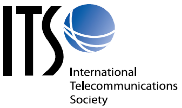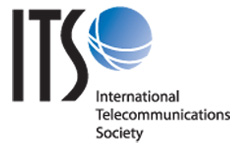Call for Papers
ITS 32nd European Regional Conference 2023
Call for Papers

32nd European regional conference of the International Telecommunications Society
Realising the digital decade in the European Union – Easier said than done?
19th – 20th June 2023, Madrid, Spain
In the middle of the Covid-19 pandemic, the European Union (EU) launched its ‘Digital Decade’ programme. By 2030, the EU envisages to have dramatically transformed the digital skills of its citizens and witnessed the digital transformation of businesses. Among various goals, public services shall be digitalised, a large majority of businesses have adopted AI, big data and cloud computing services, and connectivity improved so that everyone will have access to gigabit broadband and 5G.
These are ambitious goals. To be achieved, they require considerable investments, not only to ensure that connectivity is enhanced and cloud infrastructure available, but also that these improved assets can be best utilised by individuals, businesses and governments. Co-ordination is also required between EU institutions and Member States on the one hand, and between Member States, industry, educational institutions etc on the other.
In this context, several large European telecommunication companies have suggested that over-the-top (OTT) providers should contribute towards the cost of providing the telecommunications network infrastructure. This is contentious. Not only do telecommunication companies need to make a compelling case for this, but then regulators need to find, agree and then implement an appropriate regulatory mechanism or regime capable of efficiently and effectively addressing the issue. Subsequent investment by operators is likely to take several years to come to fruition, thus raising additional questions, for example, about optimal transition paths and their impact on European competitiveness. Considerations about OTT contributions to telecommunications infrastructure have a global dimension; they have been similarly considered by several regulators around the world.
As many popular OTT players are based outside of Europe, the desire for them to contribute to the provision of infrastructure within the EU contribute to and heighten tensions around digital sovereignty, but it is also likely to overshadow developments that are needed elsewhere. Apart from investing in the provision of cloud infrastructure, the EU also needs to enhance the digital skills of its citizens. This will allow them to maximise the benefits of being online, which are significant, but it will also contribute to the digital transformation of businesses and government services that is sought as part of the EU’s digital decade.
The provision of enhanced digital skills for individuals, which businesses and governments can then draw on, requires significant investment over the longer term. However, due to the ever changing nature of digital technologies, the provision of digital skills is a moving feast – not only does this complicate the process of providing digital skills, but it also emphasises the need for continued and wide-ranging investment. This raises two key questions: which digital skills should be developed within Europe, and how can their provision occur over the longer term?
As digital policy is increasingly determined by industrial policy considerations, this reflects the wide-ranging and central role that digital technologies play in today’s economy. It also creates challenges; for policy makers who need to co-ordinate across many different industrial contexts, for businesses who will be supported by government initiatives and for individuals who need digital skills to obtain employment.
Finally, the EU has established its political priority of a twin transition, effectively tying the goals of a digital transition with those of a green transition. Significantly, success along the path towards a more digital and sustainable future in the EU and beyond requires (coordinated) efforts by various players along relevant value chains to adhere to these priorities and facilitate a greening of the ICT ecosystem.
We specifically welcome submissions on how digital infrastructures and skills can be developed, within the EU as well as elsewhere. In addition, we welcome submissions on a range of topics as outlined below:
-
- The lasting impact of Covid-19 on the roll-out and use of telecommunication networks, different industries and users
- The interplay between mobile operators and verticals in the roll-out of 5G and the development of (new) business models
- The Internet of Things – the diffusion, adoption and commercialisation of new devices and services, privacy concerns, data collection and analysis
- Digital divides – their changing nature and how they can be overcome
- Digital skills – identifying and then providing the skills needed to participate online, for individuals and businesses
- Participation and the use of ICT by marginalised groups
- The scope and nature of universal service in telecommunication markets (in light of the 2030 digital decade goals)
- Artificial Intelligence (AI) – different types of AI, their socio-economic impact and how they will be used in specific industries and contexts
- The challenges of cyber-security when digital ecosystems are complex, evolving and global
- Online misinformation – what it is, how can it be tackled and what role does digital literacy play?
- The measurement of network performance – broadband speeds, mobile coverage
- Operator strategies – bundling, fixed-mobile convergence, and (failed) content investments
- OTT-based video streaming vs public sector broadcasters –the impact of Netflix, Disney+ and others on public sector broadcasters, smaller media companies and telecommunication companies
- Antitrust and regulation for the digital economy
- Greening the ICT ecosystem – recent developments, strategies, regulation and the impact of technological innovation
- Innovative ways of providing services (mobile and fixed telecommunications, broadcasting) in remote and rural areas
- Global regulatory regimes – the role of the ITU, regional and industry (trade) associations and lobbying by companies
- World Radiocommunication Conferences (WRC) and the development of standards within the telecommunications industry
- Techno-nationalism and protectionism in equipment and software markets
Submissions addressing any other subject relating to telecommunications technologies and markets are also welcome. Theoretical and empirical papers are welcome, as are methodologically qualitative and quantitative papers.
Submission of abstracts:
Abstracts should be about 2 pages (800 to 1000 words) in length and contain the following information:
- Title of the abstract / panel session
- A clear statement of the research question
- Remarks on the methodology adopted in the paper
- Outline of (expected) results
- Bibliographical notes (up to 6 key references used in the paper)
Abstracts should be submitted via EasyChair.
If you do not already have an account, you will need to create one. Existing accounts can be used to submit your abstract.
Please submit your abstract via:
![]() https://easychair.org/conferences/?conf=its2023
https://easychair.org/conferences/?conf=its2023
All abstracts will be subject to blind peer review.
Student paper competition:
We encourage submissions from students. Those authors wishing to participate in the student competition should submit their abstracts as normal, but are required to submit the full paper earlier than other participants – see below.
Important dates:
Local Organizer
Dr Covadonga GIJÓN
Faculty of Laws, UNED, Madrid, Spain
cgijon@cee.uned.es
Dr Aurora RUÍZ RUA
Faculty of Economics, UNED, Madrid, Spain
auroraruizrua@cee.uned.es
ITS Europe
Dr Volker STOCKER
Weizenbaum Institute for the Networked Society & TU Berlin, Berlin, Germany
vstocker@inet.tu-berlin.de
Professor Jason WHALLEY
Northumbria University, Newcastle, UK
jason.whalley@northumbria.ac.uk
